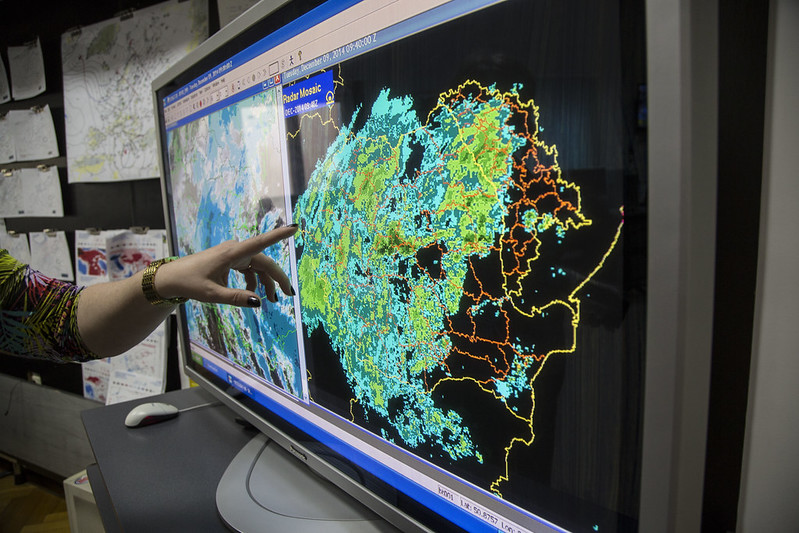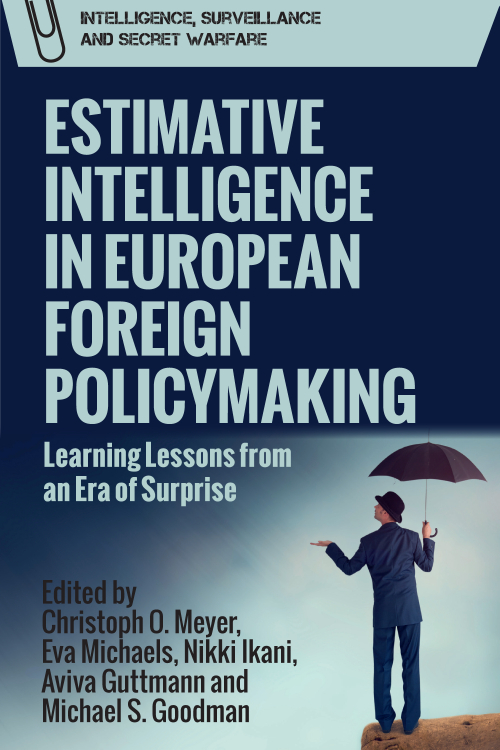
by Dr Nikki Ikani
In Estimative Intelligence in European Foreign Policymaking, we investigate how the European Union, the United Kingdom and Germany anticipated three recent crises: the Arab uprisings (also known as the Arab Spring), the Russian annexation of the Crimea, and the rise of ISIS.
We also seek to identify how organisations, governments and foreign policy communities can better forecast and mitigate the effects of future foreign policy surprises.
Each case study produced its own unique set of lessons. But there were some overarching findings…
This is what we found.
Crisis, review… crisis?
Even powers with major intelligence capabilities can still be caught by surprise, as the 2021 Fall of Kabul and the 2022 invasion of Ukraine by Russia have shown. This is because crises have become increasingly complex, involving political, economic, social, environmental and health aspects, amongst others.
During the 2010s, Europe was faced with three overlapping foreign policy surprises: the Arab uprisings, the Ukraine crisis followed by the Crimea annexation, and the rise of the Islamic State, particularly when it seized the Iraqi city of Mosul in 2014.
Although they represented different kinds of surprises, as we discuss in the book, these events all created a moment of “peak surprise”: they caught intelligence communities and policymakers across the world off guard and ushered in a new era of uncertainty.
Learning (and remembering!) the right lessons is difficult
To investigate how to avoid such strategic surprises in the future, there have been various performance reviews and public inquiries, for example in France or in the UK, but – remarkably – no such review exercises took place at the EU level or in Germany.
Even when reviews are conducted, it is difficult to learn the right lessons after such foreign policy crises. Instead, we often see blame games distracting from the often more subtle problems underlying strategic surprises.
In this book we describe how lessons learnt may be forgotten over time. After the fall of the Shah of Iran, for example, a UK review found its embassy in Tehran had gotten too close to the regime, creating a bias in its sourcing. By not engaging with street-level sources, it had missed some of the warning signs. We found similar mistakes made in European intelligence agencies with long-standing ties to the regimes in North Africa in the months prior to the Arab uprisings. Lessons fade, and old errors reoccur.
We argue that a structured “post-mortem investigation” of foreign policy crisis, such as the one we suggest, can help us better assess success and failure in anticipating these events.
Such an approach also helps in identifying those lessons which can help decision-makers to improve their forecasting and management of future foreign policy surprises – to perhaps avoid repeating the same mistakes. Three such lessons stood out.

1: Policy priorities influences intelligence priorities in subtle ways
In intelligence studies, much attention is paid to how politicisation, when policymakers manipulate intelligence findings to fit their policy preferences, can create intelligence failures. A core finding of this book is that policy priorities shape intelligence work in more subtle ways – without there being overt politicisation at play. Intelligence analysts, as well as diplomats, are sensitive to dominant political agendas and deduce what kind of knowledge is welcome, and what kind of knowledge would be deemed ‘inconvenient’ by their superiors. The political climate can thus subtly limit the type of questions asked, but also how early and in what way warnings are emitted. A good example is the EU’s anticipation of the Ukraine crisis after the planned signing of the Association Agreement in 2013. The widely shared political conviction that the EU’s approach to Ukraine at the time was not just effective but also legitimate, decreased the EU’s ability to detect problems in its approach to Ukraine
2: Greater analytical diversity leads to more forecasting success
It has been mentioned the world has become increasingly complex, with different factors interacting, including new communication technologies and new media which can easily and rapidly be used to mobilise, recruit, intimidate and influence. The collection and analysis capabilities related to these phenomena should be improved, doing justice to the interconnectedness of these factors, rather than working on these in country or policy “silos”, as currently is often the case.
This also requires hiring officers with diverse backgrounds, professional skills and language skills. Intelligence services will also need to intensify their efforts and find new ways to identify, penetrate and analyse the decision-making structures and channels of state and non-state actors, underlined by the shortcomings of secret intelligence to discern the strategies and tactics of either Russia or ISIS in the past decade.
3: Focus on spotting tipping points in time and shift resources accordingly
The current ‘era of surprise’, we write, underlines a major difficulty in estimative intelligence: spotting tipping points in trends before it’s too late. It is difficult for services to know what behaviour of (foreign) actors and powers is “normal” – on trend – and what kind of indications and behaviours signal trend breaks or potential tipping points that might create instability, and open up paths to different futures.
To better spot such developments, intelligence analysts will need to overcome so called ‘pattern bias’ – the tendency to search for evidence which confirms pre-existing theories, so that new developments are either missed, or caught too late.
This does mean, however, that it is difficult to achieve a ‘high batting average’ across forecasting cases favoured by ‘superforecasters’. Being alerted to low probability, high impact events, will after all result in false positives. Striking the right balance between false negatives and positives, between warning too soon and creating warning fatigue and warning too late, remains a challenge.
What is more, when trend breaks are spotted, resources need to be readjusted quickly, and services need to be ready and willing to question their key assumptions. Being nimble in this way, able to potentially surge resources quickly when unexpected developments occur, is an important lesson. This also means ringfencing resources for such potential surges.
The overriding aim of this book was to identify lessons that European intelligence analysts and decision-makers can embrace, internalise, and remember to better forecast and mitigate the effects of future foreign policy surprise. Our last recommendation is to systematically ask ‘what if-questions’, considering what kind of indications one would expect to see if significant changes towards a radically different future were afoot. The awareness that new paths into the future may open and close continuously, may be the most important lesson of all.
About the editor

Dr Nikki Ikani is Assistant Professor Intelligence and Security at the Institute of Security and Global Affairs, Leiden University. She is also a Visiting Research Fellow at the War Studies Department at King’s College London.
About the book

Pre-order your copy here – Save 30% with discount code NEW30
Coming October 2022!
Estimative Intelligence in European Foreign Policymaking
Learning Lessons from an Era of Surprise
Edited by Christoph Meyer, Eva Michaels, Nikki Ikani, Aviva Guttmann, Michael S. Goodman




